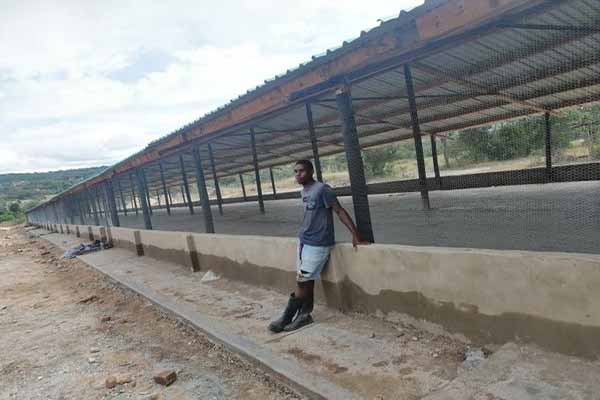Compliance of Automated Equipment for Chicken Farms in Tanzania
Time : 2025-07-03
The integration of automated equipment in chicken farms in Tanzania has been a game-changer in the poultry industry. With the increasing demand for poultry products and the need for efficient farming practices, ensuring compliance with the standards and regulations for these automated systems is crucial. This article delves into the various aspects of compliance for automated equipment in chicken farms in Tanzania, offering insights into the technological, regulatory, and operational considerations involved.
Introduction
The poultry industry in Tanzania has seen significant growth over the years, with chicken being a primary source of protein for many. Automated equipment has played a pivotal role in this growth, enhancing productivity, reducing labor costs, and improving animal welfare. Compliance with relevant standards and regulations is essential to ensure the sustainability and success of these automated systems.
Technological Compliance
Automated equipment in chicken farms includes systems such as feeders, waterers, climate control units, and monitoring systems. Technological compliance involves the following aspects:
Equipment Quality and Reliability
The quality and reliability of automated equipment are critical. Chicken farms in Tanzania must ensure that the equipment meets international standards for durability, performance, and safety. This includes regular maintenance and service schedules to prevent downtime and maintain efficiency.
Software Upgrades
Software that powers automated systems must be regularly updated to include the latest features and improvements. Compliance with software upgrades ensures that the systems are capable of handling new challenges and integrating with the latest technologies.
Integration with Existing Systems
Automated systems should be able to integrate seamlessly with existing infrastructure. Compliance requires that the integration process does not disrupt the farm’s operations and that data from the new systems can be effectively analyzed and used to make informed decisions.
Regulatory Compliance
Regulatory compliance in Tanzania involves adherence to both national and international standards. The following points highlight the key regulatory considerations:
Tanzania Poultry Board Regulations
The Tanzania Poultry Board (TPB) oversees the poultry industry in the country. Compliance with TPB regulations ensures that chicken farms adhere to guidelines on animal welfare, biosecurity, and product quality.
Food Safety Regulations
Automated systems must comply with food safety regulations to prevent contamination and ensure that the final product meets international standards. This includes regular inspections and audits by relevant authorities.
Environmental Regulations
Automated equipment must be environmentally friendly, reducing waste and minimizing the impact on the environment. Compliance with environmental regulations is essential to maintain the farm’s sustainability.
Operational Compliance
Operational compliance involves the training of staff and the establishment of protocols to ensure that automated systems are used effectively. Key aspects include:
Staff Training
Farm workers must be trained on how to operate and maintain automated equipment. Compliance requires that training programs are comprehensive and that workers are regularly updated on new technologies and procedures.
Maintenance Protocols
Establishing and adhering to maintenance protocols is crucial for the long-term performance of automated systems. Compliance requires regular checks, timely repairs, and record-keeping of maintenance activities.
Emergency Procedures
Compliance also involves the creation of emergency procedures to handle system failures or disruptions. This includes backup plans and protocols to ensure minimal impact on farm operations and animal welfare.
Challenges and Solutions
Implementing compliant automated systems in chicken farms in Tanzania comes with its set of challenges. Here are some common challenges and their solutions:
High Initial Costs
The initial cost of acquiring and installing automated systems can be prohibitive for some farms. Solution: Look for financing options, such as loans or grants, to offset the costs.
Technical Knowledge Gaps
Lack of technical knowledge can hinder the effective use of automated systems. Solution: Invest in training programs and seek professional support when needed.
Power Supply Reliability
Unreliable power supply can lead to system failures. Solution: Invest in backup power solutions and ensure regular maintenance of power systems.
Conclusion
Compliance of automated equipment for chicken farms in Tanzania is essential for the industry’s growth and sustainability. By focusing on technological, regulatory, and operational compliance, chicken farms can maximize the benefits of automated systems while minimizing risks. Continuous improvement and adaptation to new technologies and regulations will be key to ensuring the long-term success of automated chicken farming in Tanzania.
Tags
, , , , , , , , , 











